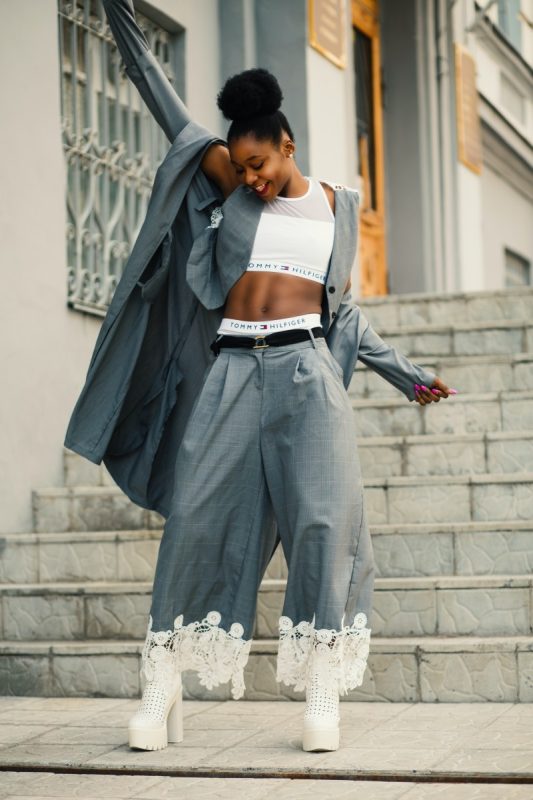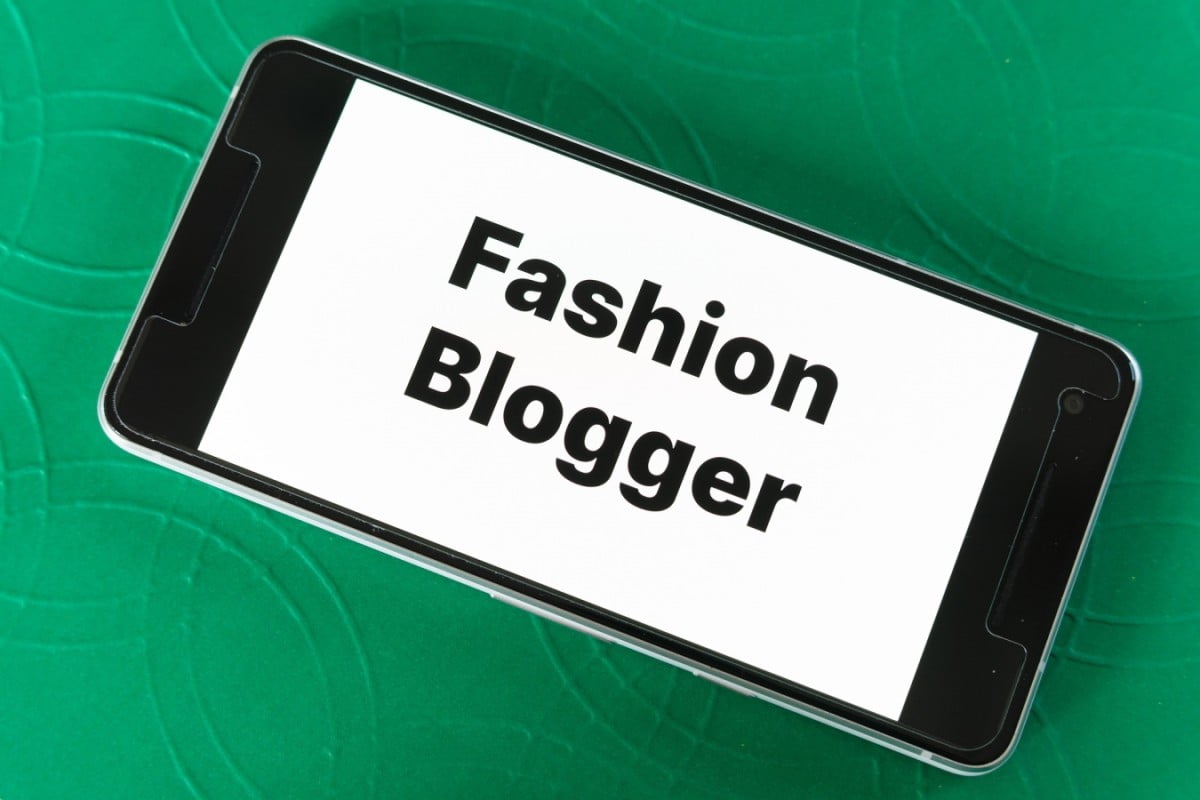Blog
THE PSYCHOLOGY OF CLOTHING

What makes people want to buy clothes?
What you wear tells other people and yourself something about who you are. According to the “psychology of clothing,” there’s more to what you wear than meets the eye. If you wear a pilot uniform, people will know you are a pilot. When you wear athletic clothes, it shows that you like sports and are in good shape. If you wear a bright red dress, it shows that you are brave and willing to try new things.
But there’s more to the link between clothes and how people see you than that. What you wear has a direct effect on how you think and act. It also affects how other people see you and how you act. You might not realize it, but your choice of outfit has more to do with how it makes you feel socially and mentally than you think.
What role do clothes play in a person’s psyche? What does clothing have to do with how people act? How can you use this psychology to your advantage to become even more powerful, productive, and attractive? Let’s talk about how clothes affect how people feel.
Cognitive Attire
Scientists have given a name to a certain type of behavior: “enclothed cognition.” This is the scientific name for the idea that what we wear affects how we think. The theory says that the clothes we wear or see other people wearing change the way we think. This is not a new thing. Clothing has been an integral part of the human experience since virtually the beginning of time. Even though it started out as a way to get things done, it quickly became an art form and a way to communicate. Dress was the most important sign of status for hundreds of years. People could see where you stood in society, how much money you had, and what you did for a living.
For example, only the royal or most important people were allowed to wear certain colors and fabrics, like purple and silk. Workers would save up all their money to buy a purple dress or accessory to try to move up in the ranks. Clothing was not only a sign of social status, but also a way to get around in a society that was very rigid. Today, the same is still true. Clothes are now an important part of our everyday lives. What you wear lets other people know who you are and where you fit in this world. It also tells your brain what kind of actions and personality traits you need to have while wearing that outfit.
THE ECONOMIC AND SOCIAL PSYCHOLOGY OF DRESS
“Judging” is a part of our society, whether we like it or not. Within the first 8 seconds of meeting you, people will make up their minds about you. Most of the time, this depends on how you shake hands, greet people, and dress. Someone will judge you right away based on what you’re wearing, whether they’re aware of it or not. For example, you might think that a person with a Chanel bag has money while a person in ripped, dirty clothes might be having trouble. If you wear black, you might listen to heavy music, while if you wear pastels, you might listen to pop radio music.
But it’s more than just looking “neat and tidy.” People can have very different ideas about how you act and who you are based on the clothes you wear. Dress for the job you want, you’ve heard it before. And this really is the case! If you dress as if you were already in that role, people will start to see you in that way. If they already see you that way, it won’t be hard for them to hire you or put you in that position. If you think of fashion as a kind of expression, it starts to make sense.
The same is true in the dating world. What you wear on a first date can give a clue about the kind of person you would be as a partner. Studies have shown that there are subtle clues in the way we dress that show what kind of person we are. For example, a woman who wears a form-fitting shirt and pencil skirt will look more successful, confident, and well-off than one who wears designer jeans and a blouse. Even small changes, like leaving an extra button undone on a blouse, can make the other person think or feel something. This isn’t meant to scare you away from society or from wearing what you want. But it’s important to know that how people look and what they wear do matter. You are a strong, beautiful, and stunning woman, so don’t be afraid to let that shine through in your clothes.
DRESS AND ITS PSYCHOLOGICAL IMPACT
Even more than how other people see you, what you wear can affect how you see yourself. The image you give off with your clothes can then affect how you act and what you do. What’s the point of wearing clothes that don’t make you feel good? One of the most well-known examples of this was a study of clothing that used lab coats from doctors. In the first part of the study, half of the people who took part were given doctor’s lab coats and the other half stayed in their regular clothes. People in white coats did better and made fewer mistakes than people in their regular clothes.
In the second half of the experiment, they gave everyone the same coats, but told half of them it was a doctor’s coat and the other half that it was a painter’s smock. Those who thought it was a doctor’s coat were able to concentrate harder and for longer than those who thought it was a painter’s smock. Researchers thought this was because doctors are known to be careful and pay attention to details, so those in lab coats started to act like doctors. The most important thing that came out of the study was that they were living up to what was expected of them.
This isn’t the only study to show that people “live up” to the ideas behind the clothes they wear. A study in the journal of Social Psychological and Personality Science found that people who wear formal business attire feel more powerful and in charge of a situation, especially when doing a cognitive processing experiment.
COLOR AND THE PSYCHOLOGY OF FASHION
What color do you feel like wearing today? Which best describes how you feel? Which might change how you feel, if not make you feel better? Do you feel calm when you wear one color and successful when you wear another? Is there a way to explain all this? Is there a real psychology behind colors that we should think about when we choose what to wear every day? Yes! We just talked about how knowing the color psychology of clothing can change how you feel about yourself when it comes to what you wear. It can be fun to think about this as you get ready to go out. For example, The Science of People says that these five colors tend to send messages about these five qualities:
Blue stands for loyalty, stability, and peace.
Red means fervor and intensity.
Yellow means happiness and hope.
Green: Health, Hope, and Success
Black: Power, Mystery, and Expertise
When it comes to the psychology of colors in clothing, you may notice that there isn’t really a “bad” or “wrong” choice. Instead, you have a lot of choices based on how you want to feel and how you want other people to feel. Going back to the original point about the psychology of colors in clothing, you might choose red on days when you feel very angry. But if you’re feeling angry and would rather feel calm, that blue dress might be the way to go.
HOW DO YOU PUT ON THE PERFECT OUTFIT?
Clothing can make a difference in how we act and how other people see us. So, how can we use what we wear to “manipulate” situations in a subtle way? How can we make fashion work for us? When you wear “power clothing,” you feel more powerful and sure of yourself. This can help you get more done, think more clearly, and improve your ability to negotiate. A well-fitted suit, like a blazer with a pencil skirt and heels, is an example of “power clothing.”
Putting on casual clothes can make you friendlier, more outgoing, and more creative. So, “casual Fridays” are a great time to come up with new ideas. Putting on your gym clothes can make you more likely to work out and make healthy decisions. It not only serves as a reminder, but it also puts you in a “healthy living” frame of mind. If you put on your gym clothes first thing in the morning before running errands, you’re more likely to go to the gym on your way home. (Wearing red to the gym can actually get you more motivated than wearing blue.)
Putting on a uniform puts you right in that frame of mind. For instance, putting on a lab coat makes you more likely to pay attention and concentrate. If you wear a trucker uniform, you are more likely to be determined and “driven.” This also applies to children. Because of this, a lot of schools require uniforms. A uniform makes learning more formal, which adds to the value of the education. Putting on designer duds has been linked to a more refined demeanor. Research has shown that when you wear expensive clothes, you’re more likely to make good financial decisions, but you’re less likely to help other people.
Even the colors you wear can change the way you feel. Colors that are bright and happy can give you more energy, while darker colors make you feel calmer and less stressed. If you’re having a bad day, put on your brightest color. It will make you feel better right away. Don’t neglect your undergarments. Wearing high-quality underwear or lingerie “just for yourself” can make you feel and act more powerful, confident, and sexy. Don’t forget that what you wear is for you!
CONCLUSION
Your worth as a person is not based on what you wear. But there is an important psychological aspect of clothing that we should know about. When you choose clothes based on how they make you feel, not just how they look, it can improve your life. It’s crucial to be aware of the ways in which your choice of attire affects your mood, demeanor, and behavior, as well as the impression you give to others.
How do you feel when you wear your clothes?


